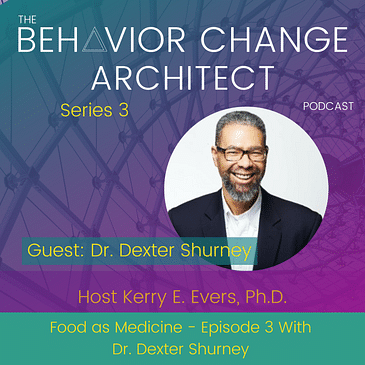We welcome back Dr. Dexter Shurney, the president of the Blue Zones Wellbeing Institute, our sponsor for this series. As a thought leader in this field, he brings us practical resources for how food as medicine can be incorporated into our programs and our lives.
IN THIS EPISODE:
- [02:00] Understanding the challenges and barriers with addressing food choices.
- [04:00] Convenience of fast food and expenses when choosing the food we eat.
- [09:00] Hibiscus tea as an alternative to water, to assist in lowering hypertension.
- [13:00] Ensuring to eat a wide variety of whole foods to receive as many nutrients as possible.
- [16:00] Food as medicine doesn’t mean giving up your favorite foods.
KEY TAKEAWAYS:
- Food as medicine means eating wholefoods, but also adding natural foods to your current favorite foods or changing the meal to a healthier version.
- The next decade of research in this area will be focused on the gut microbiome.
- Food as medicine is not only taking vitamins as a substitute but including a wide variety of wholefoods into your diet.
RESOURCE LINKS
How Not To Die by Dr. Mike Greger
How Not to Die Cookbook by Dr. Mike Greger and Gene Stone
The True Health Initiative Dr David Katz
American College of Lifestyle Medicine Website
BIO:
Blue Zones Well-Being Institute President
Dexter Shurney, MD, MBA, MPH, FACLM, DipABLM
Dr. Shurney leads the work of the Blue Zones Well-Being Institute as a “living lab” to create and codify best practices that can be replicated across regions to improve the health and wellness of communities. He ensures the capitalization of local opportunities and enhances the strength of the Blue Zones portfolio to serve communities of greatest need.
A frequent speaker often recognized for his thought leadership on health disparities research and innovative healthcare business models, Dr. Shurney is immediate past-president of the American College of Lifestyle Medicine (ACLM) and continues as one of its representatives to the AMA House of Delegates and Executive Board Committee. He also serves on numerous other boards, including the Health Enhancement Research Organization (HERO), National Association of Managed Care Physicians (NAMCP), and Population Health Alliance (PHA).
